As an American by choice rather than birth, I must confess to my growing concern that the 1776 declaration may not mean what it once did to those keepers of the trust who inhabit government today. July 4 serves as a frank invitation to consider the conditions and ideas that launched the promise of America.
What was it that provoked an assortment of dissatisfied and rebellious colonists to organize such a nation?
For over two centuries their dream has served to define freedom for the rest of the world.
How can we recapture the purity of that vision today?
One of the most compelling motivations for revolution was the Founding Fathers' profound sense of disconnect from the halls of power. Whether it was taxation without representation or the tendency of colonial governors to act without regard to the lives of average people, the distance between them and their government became as wide and deep as the ocean separating Boston from London.
The architects of America well understood what a potent catalyst for revolt that sense of disconnect could be. Consequently, they established principles guaranteed to ensure government of the people, by the people, and for the people. Over time, clarification after clarification has extended this umbrella to include women, minorities, and the poor. This sense of inclusion, bolstered by the weight of informed participation, was - and is - critical.
The message is clear: "This is our government; this country belongs to all of us." Indeed, how can freedom crumble when both the idea of liberty and the responsibility for its stewardship reside in the people? How can such a dream be eroded when authority is vested not in a favored few but with the average Joe?
The extraordinary influence of American citizens is guaranteed in the very Constitution that breathed life into this nascent republic when it was struggling to find its feet. However, every time government acts to increase the distance between real power and the people our government is commissioned to serve, we move a little further away from the meaning of July 4.
That's why it concerned me so much last week when the Supreme Court aligned itself with government and corporate interests at the expense of the rights of individual property owners.
It is not the first such move however; I smell the makings of a trend. When the government makes arrests on the basis of secret evidence; when taxing agencies overreach boundaries and abuse their power; when evidence increasingly suggests that, while we trusted them, leaders knowingly deceived us; when members of Congress award themselves privileges and benefits not available to those they purportedly serve; when the lifestyles of our representatives in Washington more closely resemble those of rock stars or European royalty than public servants.
I am worried that my fellow citizens, will continue to lose interest in a process of government too often perceived as unrelated to their everyday lives.
People tend to withdraw when they feel powerless and "out of the loop;" people tend to stay away from the ballot box when they no longer feel any relationship to those who govern; people tend to live outside the political process when they stop believing it pertains to them.
Indeed, the cultivation of "them and us" in any form compromises the promise of freedom.
Americans have never minded hard-working or smart people getting ahead - more power to them.
What does upset many Americans, however, is the idea that political clout could be related to anything other than citizenship. After all, didn't Mr. Smith go to Washington to protect us from the kind of conditions that caused Mr. Jefferson and his friends to gather in Philadelphia in the first place? Don't get me wrong; I'm not worried that we're going to have another revolution in America. Instead, I'm worried that people aren't going to care any longer; I'm concerned that they won't believe any more.
To my mind, that would be far worse.
- Derek Maul
Thursday, July 2, 2009
Subscribe to:
Post Comments (Atom)
.jpg)



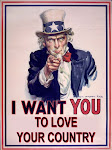





.jpg)









+%26+Tabitha+Simmons+(1765-1850)+Stone+at+Richmond+Cemetery,+KY.jpg)




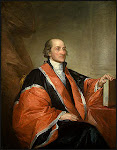


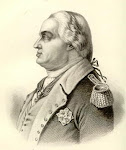
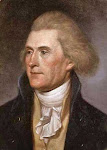

No comments:
Post a Comment